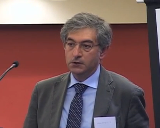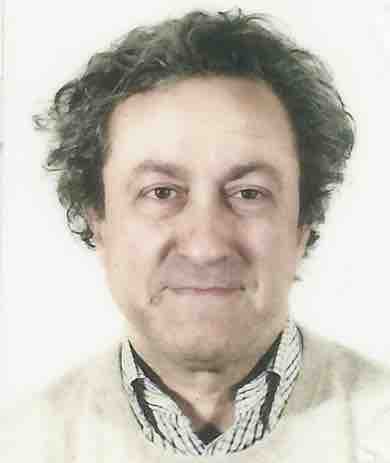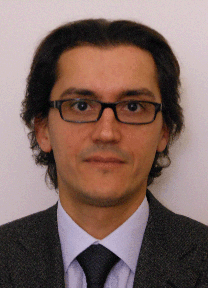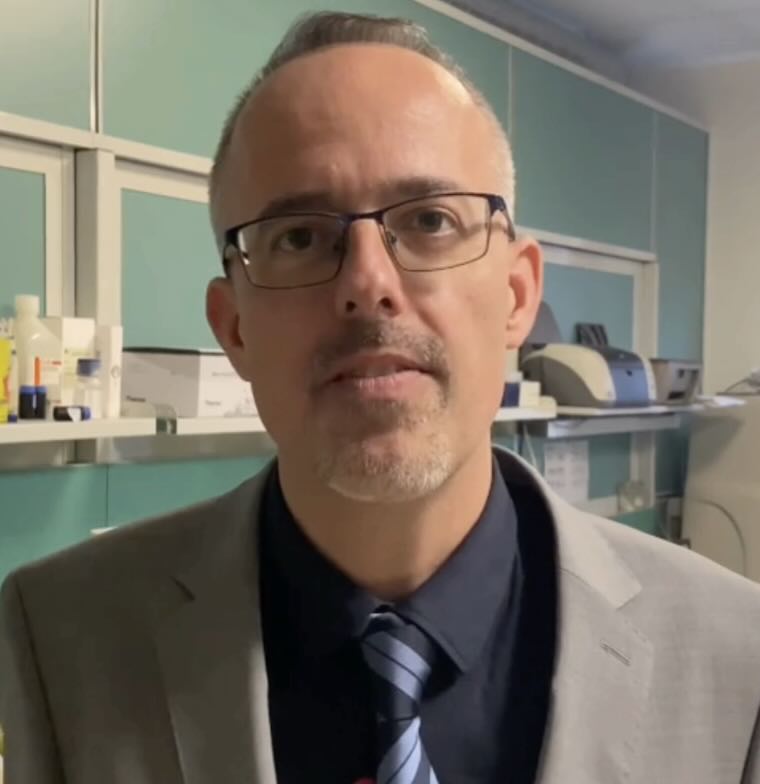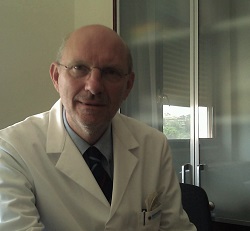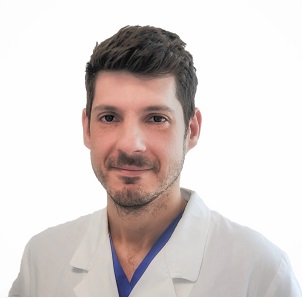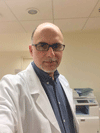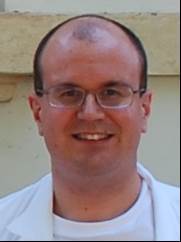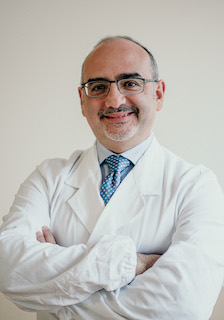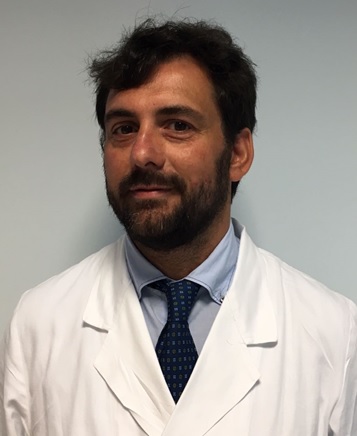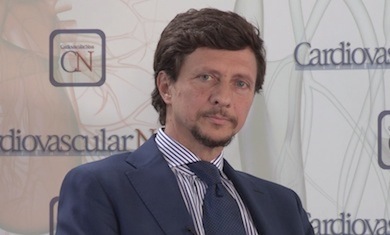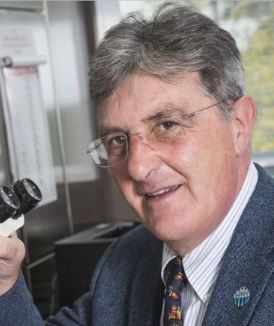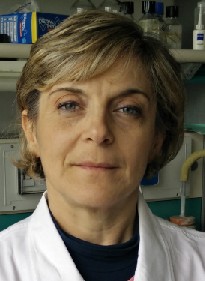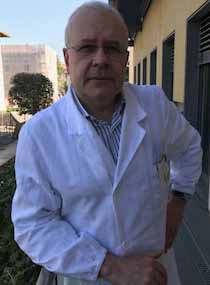Studying at the University of Verona
Academic calendar
The academic calendar shows the deadlines and scheduled events that are relevant to students, teaching and technical-administrative staff of the University. Public holidays and University closures are also indicated. The academic year normally begins on 1 October each year and ends on 30 September of the following year.
Course calendar
The Academic Calendar sets out the degree programme lecture and exam timetables, as well as the relevant university closure dates..
| Period | From | To |
|---|---|---|
| Lezioni 1° semestre 2°- 6° anno | Oct 3, 2016 | Dec 22, 2016 |
| ACCOGLIENZA MATRICOLE - ORE 9.00 - AULA D ISTITUTI BIOLOGICI | Oct 6, 2016 | Oct 6, 2016 |
| Corsi elettivi 1° semestre | Oct 10, 2016 | Dec 22, 2016 |
| Lezioni 1° semestre 1° anno | Oct 10, 2016 | Jan 13, 2017 |
| Progress test 2016 | Nov 16, 2016 | Nov 16, 2016 |
| Lezioni 2° semestre - 6° anno | Jan 30, 2017 | Apr 28, 2017 |
| Corsi elettivi 2° semestre | Feb 20, 2017 | May 26, 2017 |
| Lezioni 2° semestre 1°- 5° anno | Feb 20, 2017 | May 26, 2017 |
| Session | From | To |
|---|---|---|
| Iscrizione Corsi elettivi 1° semestre | Sep 5, 2016 | Oct 4, 2016 |
| Sessione studenti fuori corso | Oct 1, 2016 | Sep 30, 2017 |
| Sessione invernale 2°-5° anno | Jan 9, 2017 | Feb 17, 2017 |
| Sessione invernale 6° anno | Jan 9, 2017 | Jan 27, 2017 |
| Iscrizione Corsi elettivi 2° semestre | Jan 12, 2017 | Feb 16, 2017 |
| Sessione invernale 1° anno | Jan 16, 2017 | Feb 17, 2017 |
| Sessione estiva 6° anno (Gli esami che prevedono il tirocinio (Clinica Chirurgica, Clinica Medica e Geriatria, Pediatria, Ostetricia e Ginecologia) potranno essere sostenuti solo al termine delle lezioni e dopo aver completato il tirocinio in ciascuna di tali materie. Le propedeuticità vanno comunque rispettate e i laureandi nella sessione di luglio devono terminare gli esami entro il 26 giugno 2017) | May 2, 2017 | Jul 28, 2017 |
| Sessione estiva 1° - 5° anno | Jun 5, 2017 | Jul 28, 2017 |
| Sessione autunnale (i laureandi di ottobre devono terminare gli esami entro il 25.09.2017) | Sep 1, 2017 | Sep 29, 2017 |
| Session | From | To |
|---|---|---|
| Sessione straordinaria 2015-16 | Mar 13, 2016 | Mar 24, 2016 |
| Sessione estiva | Jul 10, 2017 | Jul 28, 2017 |
| Sessione autunnale | Oct 9, 2017 | Oct 20, 2017 |
| Period | From | To |
|---|---|---|
| VACANZE DI NATALE | Dec 23, 2016 | Jan 8, 2017 |
| Vacanze Pasquali | Apr 14, 2017 | Apr 18, 2017 |
| VACANZE ESTIVE | Aug 8, 2017 | Aug 20, 2017 |
| Description | Period | From | To |
|---|---|---|---|
| 6° anno:Tirocinio professionalizzante 1° semestre | 6° anno:Tirocinio professionalizzante 1° semestre | Oct 3, 2016 | Dec 22, 2016 |
| 2°-5° anno: attività pratiche e tutoriali 1° semestre | 2°-5° anno: attività pratiche e tutoriali 1° semestre | Oct 3, 2016 | Oct 3, 2016 |
| 6° anno:Tirocinio professionalizzante 2° semestre | 6° anno:Tirocinio professionalizzante 2° semestre | Jan 16, 2017 | Jun 16, 2017 |
| 1°-5° anno: attività pratiche e tutoriali 2° semestre | 1°-5° anno: attività pratiche e tutoriali 2° semestre | Feb 20, 2017 | May 26, 2017 |
Exam calendar
Exam dates and rounds are managed by the relevant Medicine Teaching and Student Services Unit.
To view all the exam sessions available, please use the Exam dashboard on ESSE3.
If you forgot your login details or have problems logging in, please contact the relevant IT HelpDesk, or check the login details recovery web page.
Academic staff
 amod101@yahoo.it; antonio.amodio@ospedaleuniverona.it
amod101@yahoo.it; antonio.amodio@ospedaleuniverona.it

Bassi Claudio
 claudio.bassi@univr.it
claudio.bassi@univr.it
 +39 045 812 4553
+39 045 812 4553
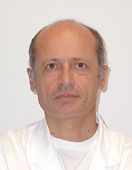
Bisoffi Zeno
 zeno.bisoffi@sacrocuore.it
zeno.bisoffi@sacrocuore.it
 +390456013326
+390456013326
 rebecca.casari@aovr.veneto.it
rebecca.casari@aovr.veneto.it
 zenodebattisti@tiscali.it
zenodebattisti@tiscali.it
 roxannebarbara.doerr@univr.it
roxannebarbara.doerr@univr.it
 giuseppe.faggian@univr.it
giuseppe.faggian@univr.it
 marco.ferdeghini@univr.it
marco.ferdeghini@univr.it
 045 812 47 84 (Segreteria) 045 802 74 89 (Segreteria di Istituto)
045 812 47 84 (Segreteria) 045 802 74 89 (Segreteria di Istituto)
 davide.gatti@univr.it
davide.gatti@univr.it
 guido.martignoni@univr.it
guido.martignoni@univr.it
 oliviero.olivieri@univr.it
oliviero.olivieri@univr.it
 +39 045 812 4414
+39 045 812 4414
 sara.pilotto@univr.it
sara.pilotto@univr.it
 daniele.prati@univr.it
daniele.prati@univr.it
 antonella.rigo@univr.it
antonella.rigo@univr.it

Rosina Paolo
 paolo.rosina@univr.it
paolo.rosina@univr.it
 +39 045 812 2547
+39 045 812 2547

Scuro Alberto
 alberto.scuro@univr.it
alberto.scuro@univr.it
 +39 045 812 4413
+39 045 812 4413
Study Plan
The Study Plan includes all modules, teaching and learning activities that each student will need to undertake during their time at the University.
Please select your Study Plan based on your enrollment year.
1° Year
| Modules | Credits | TAF | SSD |
|---|
2° Year activated in the A.Y. 2017/2018
| Modules | Credits | TAF | SSD |
|---|
3° Year activated in the A.Y. 2018/2019
| Modules | Credits | TAF | SSD |
|---|
4° Year activated in the A.Y. 2019/2020
| Modules | Credits | TAF | SSD |
|---|
5° Year activated in the A.Y. 2020/2021
| Modules | Credits | TAF | SSD |
|---|
6° Year activated in the A.Y. 2021/2022
| Modules | Credits | TAF | SSD |
|---|
| Modules | Credits | TAF | SSD |
|---|
| Modules | Credits | TAF | SSD |
|---|
| Modules | Credits | TAF | SSD |
|---|
| Modules | Credits | TAF | SSD |
|---|
| Modules | Credits | TAF | SSD |
|---|
| Modules | Credits | TAF | SSD |
|---|
Legend | Type of training activity (TTA)
TAF (Type of Educational Activity) All courses and activities are classified into different types of educational activities, indicated by a letter.
Laboratory Medicine (2018/2019)
The teaching is organized as follows:
BIOCHIMICA CLINICA - MEDICINA DI LABORATORIO
Credits
4
Period
Lezioni 2° semestre 1°- 5° anno
Location
VERONA
Academic staff
Elisa Danese
Giuseppe Lippi
Martina Montagnana
Gian Luca Salvagno
DIDATTICA PRATICA DI MEDICINA DI LABORATORIO
Credits
1
Period
See the unit page
Location
VERONA
Academic staff
See the unit page
Learning outcomes
Knowledge of laboratory test pathophysiological mechanisms and interpretation relating to individual organs and systems, for to the following topics:
Blood count, blood coagulation system, glucose metabolism and diabetes, lipid metabolism and atherosclerosis, acid-base and electrolyte balance, and plasma proteins of inflammation, renal function, liver function, enzymes in the diagnosis and monitoring, Tumor markers, Major changes endocrine (thyroid, adrenals, gonads, metabolism phosphocalcic), monitoring of pregnancy, normal karyotype, molecular biology applications and outline their main genetic diseases, monitoring of drugs.
Program
At the end of the course the student:
1) Will know the general interpretation of the laboratory test criteria based on concepts of normality, reference intervals, analytical and biological variability intra- and interindividual. Will be able to interpret the diagnostic value of laboratory tests: specificity, sensitivity, positive and negative predictive value.
2) Will know the basic principles of laboratory methods in pre-analytical phase (sampling, processing and storage of samples), in the analytical phase (basic principles and implementation of the most important laboratory techniques), and post-analytical phase (collection, processing and reporting of data, quality control).
3) Will know the meaning underlying pathophysiological alterations of laboratory indices, and will integrate these changes with signs and symptoms detected clinically by history and physical examination to arrive at an interpretation of the most important diagnostic clinical syndromes.
4) Based on the pathophysiological significance and clinical laboratory test will recognize the motivations of test requests, the logic and semiologic value of individual tests in typical clinical cases.
Bibliography
| Author | Title | Publishing house | Year | ISBN | Notes |
|---|---|---|---|---|---|
| Ciaccio M, Lippi G | Biochimica Clinica e Medicina di Laboratorio (Edizione 2017) | EdiSES Edizioni Scientifiche ed Universitarie | 2017 | 9788879599580 |
Examination Methods
Written in text-structured MCQ, short integrated clinical cases, with answers to MCQ, interpretation of laboratory data. Oral exam of Laboratory Medicine provided the student has passed the written test.
Free choice courses
| years | Modules | TAF | Teacher | |
|---|---|---|---|---|
| 1° | Progress Test 1st year | D |
Roberto Leone
(Coordinator)
|
|
| 2° | Progress Test 2nd year | D |
Roberto Leone
(Coordinator)
|
|
| 3° | Progress Test 3rd year | D |
Roberto Leone
(Coordinator)
|
|
| 4° | Progress Test 4th year | D |
Roberto Leone
(Coordinator)
|
|
| 5° | Progress Test 5th year | D |
Roberto Leone
(Coordinator)
|
|
| 6° | Progress Test 6th year | D |
Roberto Leone
(Coordinator)
|
|
| years | Modules | TAF | Teacher |
|---|---|---|---|
| 2° 3° 4° 5° 6° | Training to medical humanities | D | Not yet assigned |
Career prospects
Module/Programme news
News for students
There you will find information, resources and services useful during your time at the University (Student’s exam record, your study plan on ESSE3, Distance Learning courses, university email account, office forms, administrative procedures, etc.). You can log into MyUnivr with your GIA login details: only in this way will you be able to receive notification of all the notices from your teachers and your secretariat via email and also via the Univr app.
Erasmus+ e altre esperienze all'estero
Extra courses and activities
Opzioni (cambio di ordinamento)
Studenti iscritti alla classe LM/41 (Classe delle lauree magistrali in medicina e chirurgia)
Il MUR, con nota prot. n. 8610 del 25/3/2020 avente oggetto: “Abilitazione all’esercizio della professione di Medico-Chirurgo - art. 102 - Decreto legge 17 marzo 2020 n. 18 (convertito con modificazioni dalla L. 24 aprile 2020, n. 27), dispone l’adeguamento dell’ordinamento della classe LM/41 alle normative citate in oggetto.
Coloro i quali hanno concluso/concluderanno il tirocinio pratico-valutativo pre-lauream con giudizio di idoneità (ai sensi del DM 58/2018), conseguita la laurea, sono abilitati all’esercizio della professione di medico-chirurgo e possono procedere all’iscrizione presso l’Ordine dei Medici.
Rilascio del titolo di abilitazione
Ai fini del rilascio dell’abilitazione professionale è richiesto il pagamento delle seguenti tasse:
- tassa erariale pari a € 49,90 da versarsi prima che inizi la frequenza del tirocinio pratico valutativo
- tassa regionale di abilitazione da versarsi all’atto della consegna del titolo di abilitazione.
Studenti iscritti alla classe 46/S (Classe delle lauree specialistiche in medicina e chirurgia) e ordinamenti previgenti (attualmente fuori corso) oppure studenti iscritti alla classe LM/41 con coorti antecedenti alla coorte 2014 (attualmente fuori corso).
Il MUR, con nota prot. n. 8610 del 25/3/2020 avente oggetto: “Abilitazione all’esercizio della professione di Medico-Chirurgo - art. 102 - Decreto legge 17 marzo 2020 n. 18” dispone che, gli iscritti agli ordinamenti previgenti, con tirocinio pratico previsto post – laurea (ai sensi del DM 445/2001), ferme restando le norme sulla decadenza dagli studi, possono concludere il percorso di studio senza dovere necessariamente acquisire, ai fini dell’ammissione all’esame finale di laurea, il giudizio di idoneità del suddetto tirocinio pratico valutativo. In tal caso il diploma di laurea che rilascerà l’Ateneo avrà la sola valenza di titolo accademico. Resterà ferma, in ogni caso la possibilità per tali soggetti di conseguire eventualmente l’abilitazione all’esercizio della professione di medico-chirurgo in un momento successivo, secondo le modalità di cui al comma 2 dell’art.102, cioè conseguendo la valutazione del tirocinio prescritta dal D.M. n. 445/2001. L’Ateneo continuerà a predisporre un separato diploma di abilitazione.
Si ricorda che ai suddetti studenti è in ogni caso consentita l’opzione al nuovo ordinamento secondo i termini e le modalità previste.
Documents
| Title | Info File |
|---|---|
|
|
pdf, it, 525 KB, 14/06/21 |
|
|
pdf, it, 419 KB, 14/06/21 |
|
|
pdf, it, 377 KB, 12/12/23 |
|
|
pdf, it, 483 KB, 21/06/24 |
|
|
pdf, it, 481 KB, 21/06/24 |
Timetable
Documents
| Title | Info File |
|---|---|
|
|
pdf, it, 791 KB, 01/07/24 |
|
|
pdf, it, 432 KB, 23/08/24 |
|
|
pdf, it, 548 KB, 22/09/23 |
Graduation
Documents
Gestione carriere
Internship and practical and tutorial activities – Medicine
Student login and resources
Modalità e sedi di frequenza
La frequenza è obbligatoria.
Maggiori dettagli in merito all'obbligo di frequenza vengono riportati nel Regolamento del corso di studio disponibile alla voce Regolamenti nel menu Il Corso. Anche se il regolamento non prevede un obbligo specifico, verifica le indicazioni previste dal singolo docente per ciascun insegnamento o per eventuali laboratori e/o tirocinio.
Non è consentita l'iscrizione a tempo parziale. Per saperne di più consulta la pagina Possibilità di iscrizione Part time.
Le sedi di svolgimento delle lezioni e degli esami sono le seguenti:
